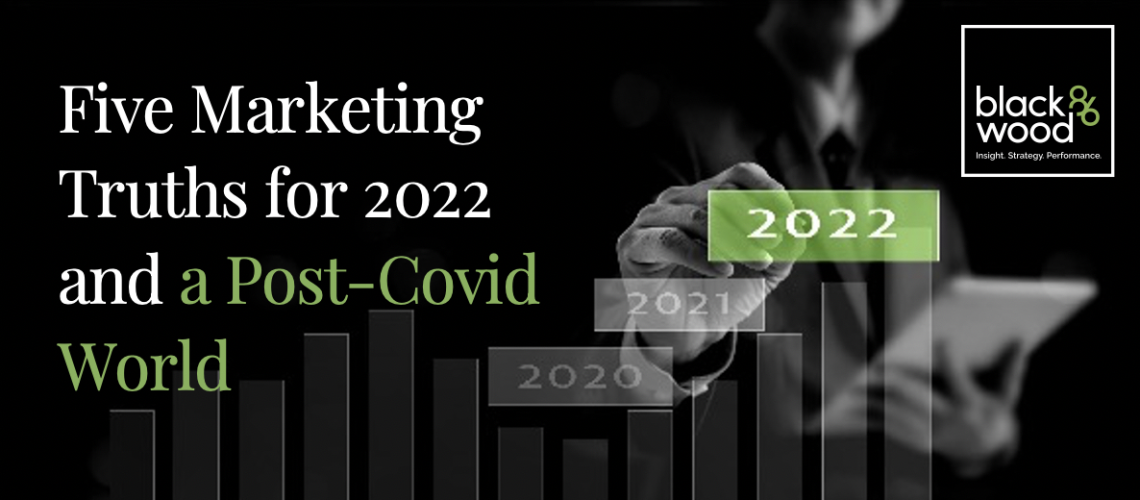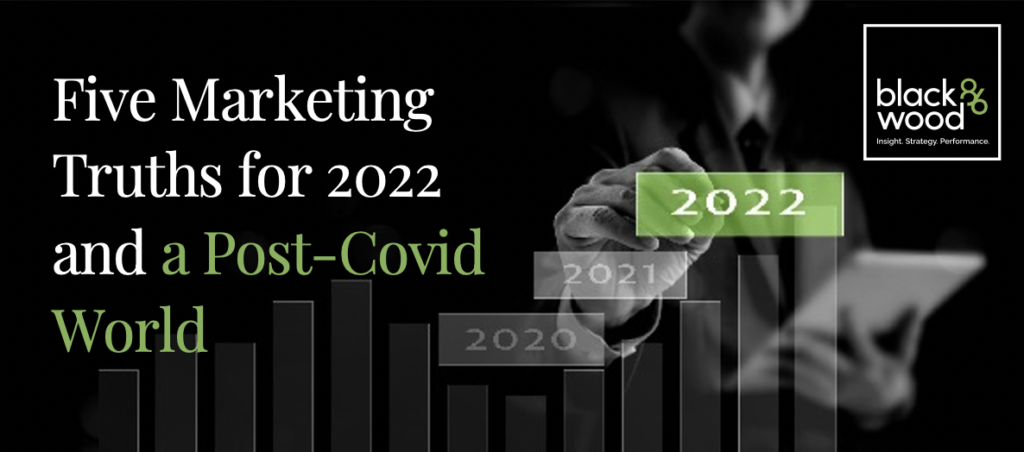In a series of blogs we will see how some long held marketing truths are changing in a Post Covid world.
. . .
Truth 1
Old Truth: Businesses should be built around satisfying a customer need.
New Truth: Businesses now also need to be able to adapt quickly to changing customer needs.
The traditional approach for many businesses has been to compete on scale and efficiency or through some sort of product or service differentiation. With consumers needs relatively stable the focus has been on creating organisations that can deliver these strategies better than their immediate competitors. But we must recognise that with the seismic shock from Covid-19, uncertain geopolitics, new political movements and of course the increased focus on climate change, many people’s lives and the environment that businesses operate in have fundamentally changed.
The environment that we all live and work in is becoming increasingly complex and fluid. To succeed in 2022 and beyond businesses need to adapt to the changing needs and behaviours of existing and new customers. And they need to do this much more rapidly than they have in the past. The pandemic in particular has been the catalyst for a huge leap in digital adoption. McKinsey have called this the ‘Quickening’, with 10 years growth of e-commerce penetration coming in 3 months.
Businesses more than ever need to ensure they have a learning mindset and adaptable culture, able to objectively review long held truths and explore seriously how they need to change and adapt to the new landscape they find themselves in. Crucially they need to ensure that they do this with emerging and even future customer needs in mind, predicting where their market will move and what model will succeed.
Pret a Manger
One familiar UK high street name that illustrates how marketing has adapted to the post-Covid world and listened to its customers is Pret a Manger. Many of us would recognise that pre-pandemic, with its chain of strategically positioned high street outlets and its range of freshly prepared hot and cold fast food and drinks, Pret a Manger did a good job of meeting the needs of office workers, shoppers and others.
But Pret a Manger’s footfall fell away dramatically from March 2020 as we all worked from home. Stores closed and – excuse the pun – a fresh approach was required.
Customer research highlighted that Pret a Manger might do more to meet the needs of vegan consumers, as well as shake off its middle class, office worker image in urban areas.
Pret a Manger added nine vegan dishes to its menu including a meatless meatball hot wrap, as a plant-based meat alternative. To market the new product and to target a younger, urban audience, Pret a Manger teamed up with Grime MC and ‘Big Zuu’s Big Eats’ television series host, Big Zuu, who wrote and recorded an advert about the new wrap – (w)rap, perhaps? – called “It’s A Meatless Meatball Ting”.
Marketing has this ability to connect what the consumer needs with what the organisation can deliver. The most effective marketers play the role of the customer, trying to understand their customers’ needs through penetrating data insights and regular qualitative and quantitative feedback. Such marketers use these learnings to test and learn, tailoring products and service offerings accordingly. They are also typically the “voice of the customer” in their organisations, reminding colleagues across all business areas that, over the longer-term, it is customer satisfaction that drives sustainable profitability and revenue growth. In this example the business didn’t just change its message, or try to reach a different audience with it current product offering. It actually changed its offering to better suit a new audience and adapted to its situation in a holistic way.
Many businesses face similar challenges to Pret a Manger in 2022 and beyond. It’s never been more important to really understand what underlying current and future needs are in order to adapt propositions and positioning in order to survive and thrive.


